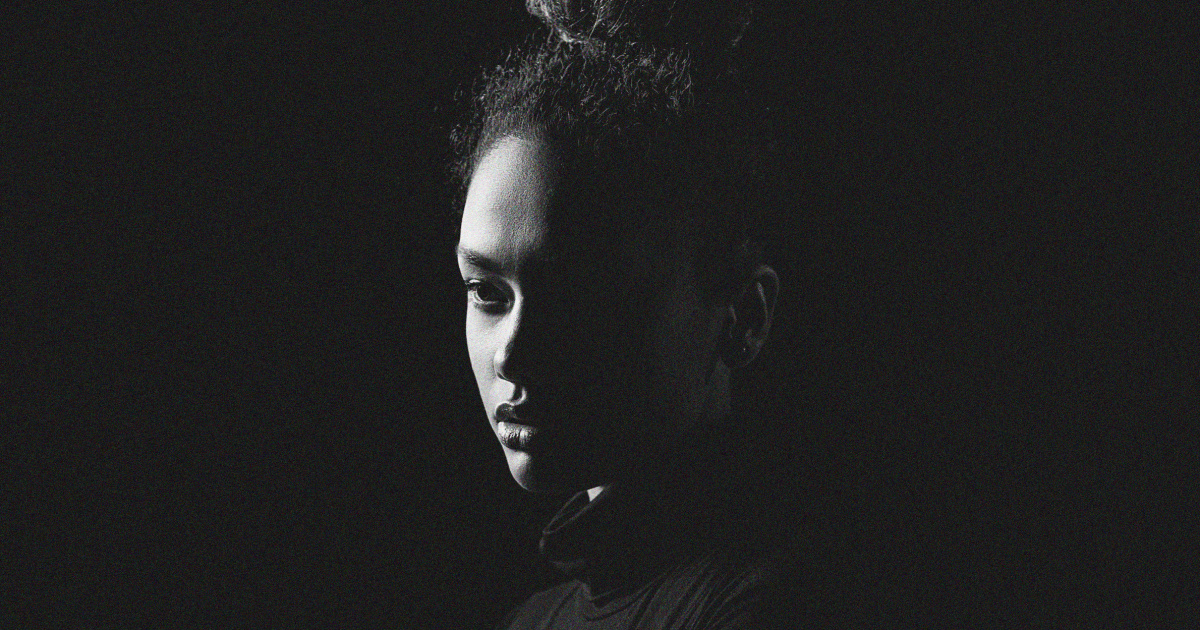- cross-posted to:
- news@lemmy.world
- cross-posted to:
- news@lemmy.world
The paper included a decade’s worth of data from the Centers of Disease Control and Prevention among Black women ages 25 to 44 across 30 states.
In the U.S., Black adult women are six times more likely to be killed than their white counterparts, troubling new data reveals.
A paper published Thursday in The Lancet medical journal analyzed homicide rates of Black women ages 25 to 44 across 30 states. The data was collected between 1999 and 2020 by the Centers for Disease Control and Prevention’s National Vital Statistics System.
Homicides were classified in this study as death by shooting, piercing, cutting and other forms of violence. Racial disparities varied among states; in Wisconsin, for example, Black women were 20 times more likely to be killed than white women. Black women living in Midwestern and Northeastern states were also more likely to be killed by a firearm, the paper found.
The study was designed to provide more comprehensive data about homicide rates among Black women and fill in the gaps in the existing literature, said Bernadine Waller, the paper’s lead author and a postdoctoral psychiatry research fellow at the Columbia University’s Irving Medical Center.
The article basically says it’s a pattern driven by poverty and population density. We’ve all heard that explanation before, and it seems reasonable.
But imagine you’re a middle class black woman; how are you supposed to interpret this? I imagine those women (and men too) would have very mixed feelings about being painted with such a wide brush. Not that I’d know, but I would love to hear something from their perspective.
Yep. When you normalize for poverty and population density, the crime rates are basically equal. The story isn’t about a race, the story is poor people are more likely to be murdered because they can’t choose to leave high crime rate areas.
Well, it’s also about the fact that one race is a lot more likely to be poor than another. Intersectionality and all that.
Ignoring that cultural reasons may or may not be part of the picture doesn’t help any one solve the problem either
Cultural reasons seems a bit vague.
Distrust of police and lack of faith in the justice system is common among the black population of the USA. However, I don’t know what that other guy had in mind.
For good reason. Or do you believe that if they report their would-be murderers, the police would act before it’s too late?
I think it is bullshit to pretend that black people living in America have nothing in common with each other, which is what the person I responded to seemed to believe.
It could be linked more to economic opportunity than culture but possibly rates of gangs, the desensitising effects of gang violence and also the reduced rates of married or long term relationships leading to less stable male role models in these communities. There does appear to be a higher rate of idolisation of gang culture in black communities than others.
Don’t black folks in USA have a rather distinct own culture?
Many black people share in a distinct culture which has become known as black culture. It is by no means a requirement.
Sure, that is true for any culture.
Given this (from the grandparent of your comment)…
When you normalize for poverty and population density, the crime rates are basically equal.
…“cultural reasons” seem unlikely.
The idea of crime rates for every crime being even across all cultures is ridiculous if you take second to think about it
Well it is somewhat about race as that means more poor people are black and more non-poor people are not black. But yeah it’s stupid to make each and every observation of how black people are more affected by X when that X thing is already linked to poverty, instead of focusing on the core issue
When you normalize for poverty and population density, the crime rates are basically equal.
I don’t disbelieve you, but could you cite a source?
This paper found that the two largest driving factors were single parent households and lack of a high school education. While they did not find that economic statis was the largest direct factor, it is important to note that things like education (one of the driving factors) increase as poverty declines:
Much of the racial/ethnic homicide differentials in neighborhoods with high concentrations of African-Americans and Hispanics were explained by two of our four measures of social disadvantage, the percent female head of household and the percent persons with less than a high school education
This older paper points the finger at income inequality:
income inequality is the only independent variable with any appreciable explanatory power
This much more recent article also points the finger at inequality:
Inequality predicts homicide rates “better than any other variable”
Could you quote the part you are referring to, where they normalize for poverty and population density?
The first page is pretty much all you need for the context of the conversation. Basically, according to the paper, Black people in the US are significantly more likely to be exonerated of any crime, but especially murder. This inversely means they’re significantly more likely to be found guilty of a crime they did not commit.
The reasoning, I assume, for the person to link you that article is because of your statement about crime rates. I believe the other commenter is trying to say that crime rates are not actually equal once you normalize for poverty because of the high rate of false convictions.
Tbh, I’m not really sure what else to say about that. I just wanted to comment my thoughts on your question since I saw how rude the person you commented to was.
It’s an interesting concept, and it could certainly due with some studying. My main thought is that if a cohort (poor people) are more likely to commit crimes, it stands to reason they are more likely to be incorrectly convicted of crimes as well. If there are 7x as many crimes in a population, 7x as many incorrect convictions would be a reasonable baseline.
So, my followup question then, if when normalized for poverty or crime rate, is there still a difference in the data? I unfortunately didn’t see any discussion of such in the paper, which left me wanting.
lol. Don’t be lazy and read the article.
People aren’t talking about convictions, but about actual murders. The fact that murder rates are higher in poorer areas is nothing new.
If you control for socioeconomic factors, blacks are still more likely to be murdered.
https://www.ncbi.nlm.nih.gov/pmc/articles/PMC3455929/pdf/11524_2006_Article_337.pdf
I’ve never made any claim. I only tried to clarify that people aren’t talking about conviction rate as you were alluding to in your original comment. I appreciate you backing up your claims with sources by default though, although commenting in an antagonistic manner isn’t really conductive for healthy discussions.
Sorry, there just such a strong undercurrent of racism in a lot of comments that it’s upsetting. Yes, of course socioeconomic status plays a big role but racism does as well. And it’s not getting better. The implications that it’s all due to being “poor” doesn’t explain away the systemic racism in American society. Have a great day!
Sorry, there just such a strong undercurrent of racism in a lot of comments that it’s upsetting.
That’s understandable
Have a great day!
You too mate
Middle class black parents still have to have conversations with their children that middle class white parents do not have to.
The conversations all involve how to handle police and aggressive white people. Basically, how to de-escalate to avoid death.
While I understand the point you’re trying to make, I think a lot fewer of them would have issue with this characterization than you would think, partially because they have solidarity with their poorer sisters.
It’s easy to have that kind of solidarity when individuals from your community, rich and poor, are constantly targeted simply for the color of your skin.
A 2020 study published in the National Library of Medicine found that Black and Latina women who experienced intimate partner or sexual violence were two to three times more likely to experience abuse or a neglectful response from law enforcement when reporting the incident. Other reasons that may influence Black women’s police engagement for intimate partner violence included institutional racism, self-blame and stereotypical strength, among others.
“When something happens, you’re supposed to be strong,” Cottman said. “But then when law enforcement respond, you’re not seen as the victim because you’re strong.”
Here, now you don’t have to imagine:
https://www.blackpast.org/african-american-history/combahee-river-collective-statement-1977/
This isn’t a new thing. Black women have known about this for a long time.
we find our origins in the historical reality of Afro-American women’s continuous life-and-death struggle for survival and liberation.
we were told in the same breath to be quiet both for the sake of being “ladylike” and to make us less objectionable in the eyes of white people.
let alone cataloguing the cruel, often murderous, treatment we receive, Indicates how little value has been placed upon our lives during four centuries of bondage in the Western hemisphere.
Imagine you’re a 61 year old Nigerian. On average, you have one year left to live. Should you spend your last money on one 300$ hooker or 300 one dollar hookers?
On average, you have one year left to live.
No, you’re misusing the statistic you cited, which says the life expectancy at birth is 61.79 years. That figure includes infant and childhood mortality, so the average life expectancy for people who already survived childhood is always higher than that.
(Your source also shows that Nigerian infant mortality is 10x higher than it is in the US, so that skews Nigeria’s average a lot. Considering that your source shows that the Nigerian adult obesity rate is 8.9%, compared to 41.9% in the US, life expectancy at adulthood in Nigeria might even be higher than it is in the US. I’m not saying it is; I’m saying that, given the source you cited, we don’t know that it isn’t.)
I was joking but thanks for that explanation, it makes sense. My coworker from about 15 years ago was Nigerian and I showed him the stat. I remember it was 48 at the time which seemed insanely low but neither of us could understand why so he just had to accept that he only had 8 years left.
The study was designed to provide more comprehensive data about homicide rates among Black women …
While researchers did not identify the causes behind the staggering difference.
I wonder if this is because the killers are more likely to be black?
It’s kind of simple really either the reason blacks are killed more is because they are poorer in which case race is completely irrelevant. Or blacks get killed more than whites then the reason isn’t who’s being killed but who’s doing the killing. That’s the issue that needs addressing.
Investigating the victims seems to be putting the cart before the horse.
Or do black people just get convicted of murder more often than white people?
Nah.
3,200 innocent defendants exonerated in the United States since 1989
There was a total of 21,156 reported homicide cases in the U.S. in 2022
Yea with numbers like that it must be wrongfully convicted. Come on, you’re just trying to use stats to prove a wrong point. That’s a rounding error
Sorry, why do you think that only the exonerated are innocent? Also, why do you think a black person being exonerated has anything to do with a white person not being convicted at all for the same crime I don’t know.
I struggle to believe that anything close to the majority of that 21k somehow ends up being innocent.
Again- the question is not how many black people who are found guilty of murder are innocent, it’s how many white people are found not guilty for the exact same crime with the same level or greater evidence against the defendant. Or not even charged in the first place.
I have never heard of a black person having affluenza. In fact, the only black person I have ever heard of being let off for spurious reasons like ‘affluenza’ is OJ Simpson and only because he was super rich and had like 8 high-paid lawyers vs. 2 deputy district attorneys.
Found the black on “black crime is the real problem” ,racist.
I bet u don’t even know it being racist rn…
This is a common trope among racists like yourself. Aka “anti-woke”.
Are you sure you’ve read the whole comment?
shoot first
ask questions later
Are you sure you know what the facts are?
https://www.law.umich.edu/special/exoneration/Documents/Race_and_Wrongful_Convictions.pdf
Wait until you see those numbers compared to native American women… It’s a damn disgrace how women born to the minority population is treated when it comes down to it.
IMO the most important variable left out there is economic status. Which is of course correlated, but not caused with or by minority status (due to historical factors).
All of man are the same, but unfortunately our circumstances are not.
What specific part of my previous comment do you disagree with? Your pdf doesn’t conflict with my statement. My point was that the disparities in the criminal justice field we see between races are the results of socioeconomic factors rather than say biology.

This is the best troll destruction I’ve seen in a while. Keep it up!
And congrats on BSc
My point was that the disparities in the criminal justice field we see between races are the results of socioeconomic factors rather than say biology.
I have a disagreement with your strong implication that the criminal justice disparities between races are not also steeped in racism. If you control for socioeconomic factors, blacks are still much more likely to be murdered as well as wrongly convicted and are more likely to be victims of police brutality. https://www.ncbi.nlm.nih.gov/pmc/articles/PMC3455929/pdf/11524_2006_Article_337.pdf for evidence of socioeconomic control and my previous article for proof of wrong conviction and brutality.
Why is law enforcement so much harder on blacks and minorities? One possible reason is the infiltration of law enforcement by white supremacists for decades: https://www.justsecurity.org/wp-content/uploads/2021/06/Jan-6-Clearinghouse-FBI-Intelligence-Assessment-White-Supremacist-Infiltration-of-Law-Enforcement-Oct-17-2006-UNREDACTED.pdf
Racism is a social factor. The ‘socio’ part of socioeconomics stands for social.
I have a disagreement with your strong implication that the criminal justice disparities between races are not also steeped in racism.
I made no such implication.
I made no such implication.
You said “the most important variable left out there is economic status” while minimizing the importance of race. That is an implication whether you like it or not. Social media in general and Lemmy specifically is contaminated with a racist element that will use your statements to justify their beliefs. I cannot say whether you were intentional or not but you should be more careful with your words if your intent is not to embolden those who are perfectly happy with the statistical biases that the articles I have linked contain.
Saying economics are the most important factors doesn’t suggest social factors are un-important. Never the less the two are intertwined. Current day economic situations are controlled by historical social factors.
This is like me saying “I like waffles” and someone hearing “I hate pancakes”.
Treated by whom? Who kills black women?
Who kills black women?
Usually men do.
Why would men specifically select women from minorities?
I don’t think it is necessarily “selecting”. I’m not exactly sure what it is. But what I found in the article that at least starts to get at your questions is:
Approximately 45% of Black women experienced stalking, physical and sexual violence in their lifetimes, and an estimated 51% of Black female adult homicides were related to intimate partner violence, according to The National Coalition Against Domestic Violence. Intimate partner violence was also a key contributor of homicide in Black women, Waller’s paper notes.
…Karma Cottman, chief executive officer for Ujima Inc., a resource center focused on ending domestic, sexual and violence within Black communities. Cottman said the statistics are a direct result of economic instability and a large access to firearms.
It goes on to talk about the relationship stresses of economic instability.
Also
Many Black women also have a fear of calling law enforcement, Cottman added, which puts them “at greater risk for experiencing violence” since they do not ask for police intervention until a situation turns deadly.
I’m just passing along relevant bits of the article. I think the above quote would need more study as it strikes me as complex factors interacting. How many black women are killed by the police? I have no idea. How many die as a secondary result of police encounters? How does that compare to not getting police intervention sooner?
A 2020 study published in the National Library of Medicine found that Black and Latina women who experienced intimate partner or sexual violence were two to three times more likely to experience abuse or a neglectful response from law enforcement when reporting the incident.
Finally, what to do?
Waller is calling for more gun legislation and said more work needs to be done to dismantle inequities that directly impact Black women.
Black women are murdered at younger ages and higher rates than other women of colour, including Native American and Alaska Native women.
That’s from the paper referenced in the article. I’m reading through it now.
I was working off information from before this. Lots of personal experiences and studies like this https://www.cdc.gov/mmwr/volumes/66/wr/mm6628a1.htm
This study included 31627 homicide deaths (12243 among Black women and 19384 among White women) from 1999 to 2020.
Holy shit America! Wtf???
Now take into account men are more often killed than women, and this is just women.
UPD. I don’t know why I’m being downvoted. I just point out the total numbers are over twice as much. I do not mean to hijack the conversation if that’s what it is about.
The paper included a decade’s worth of data from the Centers of Disease Control and Prevention among Black women ages 25 to 44 across 30 states.
This seems weirdly specific.
When you do a meta analysis (a study that aggregates and compares the results of existing studies rather than de novo research), you have to work pretty hard to make sure all of the studies you’re using agree with each other on definitions, the ways they aggregate the data, and so on. You have to start out by collecting a large number of papers, and then building around the ones who are most closely aligned with each other on the statistics you’re interested in studying. Some might group ages differently or report causes of death differently in a way that cannot be reconciled in a statistically reliable way.
I was a contributing author on a couple such papers, and I swore never to do them again. They can be very useful, and hopefully this one will be high impact, but as an author they’re an order of magnitude harder to write than just doing a paper on your own work.
If it’s a study they probably should be specific. And that probably makes it easier to process too.
Guess I’ll have to keep murdering white women till it equalizes
There’d likely be a self identifying trans black woman in the comments talking about how high their murder rates are… but they’re likely busy trying to not experience violence.
deleted by creator
















